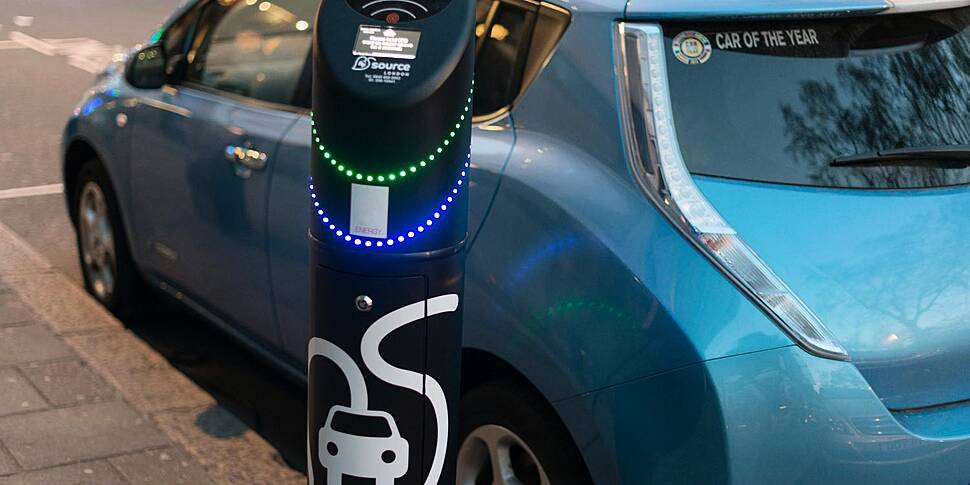Auto Dealers Double Down On Opposition To EV Sales Requirements

Table of Contents
Financial Concerns and Investment Hesitations
One of the primary reasons for auto dealers' resistance to EV sales mandates lies in the significant financial implications. Transitioning to EV sales requires substantial upfront investment. This includes building costly charging infrastructure at dealerships, training staff on EV technology and servicing, and potentially absorbing losses from decreased sales of gasoline-powered vehicles (ICE vehicles). The long-term profitability of EV sales remains uncertain, adding another layer of hesitation for many dealers.
- High initial investment in EV charging infrastructure: Installing fast chargers and ensuring adequate power supply can be prohibitively expensive for smaller dealerships.
- Lack of government subsidies for dealer infrastructure upgrades: While some government incentives exist for EV purchases, support for dealer infrastructure improvements is often insufficient.
- Uncertainty regarding consumer demand for EVs in specific regions: EV adoption rates vary widely geographically, creating uncertainty for dealers in areas with lower demand.
- Concerns about lower profit margins on EV sales compared to ICE vehicles: The current business model for many dealerships heavily relies on the higher profit margins associated with the sale and servicing of internal combustion engine (ICE) vehicles.
Logistical Challenges and Infrastructure Gaps
Beyond financial concerns, auto dealers face significant logistical hurdles in adapting to the EV sales landscape. Servicing and repairing EVs differ substantially from working on traditional vehicles. The specialized knowledge and tools needed are currently in short supply. Dealerships also grapple with integrating EV sales into their existing operational frameworks, often requiring substantial modifications to their infrastructure and processes.
- Shortage of trained EV mechanics: A skilled workforce capable of diagnosing and repairing EV systems is currently limited, leading to potential delays and increased service costs.
- Limited availability of EV parts and repair facilities: The supply chain for EV parts is still developing, leading to potential delays in repairs and increased costs for dealerships.
- Need for significant investment in new tools and equipment: Specialized tools and diagnostic equipment are required to service EVs effectively, adding to the financial burden on dealerships.
- Challenges of managing different inventory and sales processes for EVs and ICE vehicles: Dealerships need to adapt their existing systems to manage both EV and ICE vehicle sales, inventory, and service appointments efficiently.
Concerns about Consumer Readiness and Market Demand
Another key factor contributing to auto dealers' resistance is concern about consumer readiness and market demand for EVs. Range anxiety, charging infrastructure limitations, and misconceptions about EV technology remain significant barriers to widespread adoption. Regional variations in consumer preferences and EV adoption rates further complicate the picture. Dealers worry about the potential for market saturation in certain areas, especially in the short term.
- Consumer misconceptions about EV range and charging times: Many consumers still harbor misconceptions about EV range and charging times, which can deter potential buyers.
- Concerns about the availability of public charging stations: The lack of a comprehensive and reliable public charging infrastructure remains a major concern for potential EV buyers.
- Varying consumer acceptance of EVs across demographics and geographical locations: Consumer adoption rates for EVs vary widely depending on factors like age, income, and location.
- Potential for oversupply in the EV market in the short term: Dealers fear that a rapid increase in EV production could lead to oversupply and depressed prices, impacting profitability.
Lobbying Efforts and Political Influence
Facing these challenges, auto dealer associations are actively lobbying against stricter EV sales requirements. They employ various strategies, including direct lobbying of state and federal legislators, forming alliances with other industry groups opposed to environmental regulations, and using media campaigns to shape public opinion. Their arguments often center on the economic impact of rapid EV adoption and the importance of maintaining consumer choice.
- Lobbying efforts targeting state and federal legislators: Auto dealer associations are actively engaging with policymakers to influence legislation related to EV sales mandates.
- Alliances with other industry groups opposing environmental regulations: Dealers are collaborating with other groups, such as oil and gas companies, to counter stricter environmental regulations.
- Use of media campaigns to influence public opinion: Dealers are using media campaigns to portray EV mandates as harmful to the economy and consumer choice.
- Arguments focusing on economic impact and consumer choice: Dealers emphasize the potential economic consequences of rapid EV adoption and the importance of maintaining consumer choice in the automotive market.
Conclusion: The Future of EV Sales and Dealer Adaptation
The resistance of auto dealers to EV sales requirements stems from a complex interplay of financial uncertainties, logistical challenges, and concerns about consumer readiness. Continued resistance, however, could have significant consequences, slowing the transition to sustainable transportation and potentially hindering the growth of the EV market. Addressing these concerns requires a collaborative effort, involving government support for dealer infrastructure upgrades, investment in EV technician training, and continued public education to address consumer concerns. Finding a balance between promoting EV adoption and alleviating dealer anxieties is crucial. Understanding the complexities surrounding Auto Dealers Double Down on Opposition to EV Sales Requirements is crucial for a successful transition to electric vehicles. Learn more and get involved in the conversation today!

Featured Posts
-
 Chat Gpt Maker Open Ai Under Ftc Investigation Key Questions Answered
Apr 28, 2025
Chat Gpt Maker Open Ai Under Ftc Investigation Key Questions Answered
Apr 28, 2025 -
 Cassidy Hutchinson Memoir A Fall Release On Her January 6th Testimony
Apr 28, 2025
Cassidy Hutchinson Memoir A Fall Release On Her January 6th Testimony
Apr 28, 2025 -
 Starbucks Union Spurns Companys Guaranteed Raise Proposal
Apr 28, 2025
Starbucks Union Spurns Companys Guaranteed Raise Proposal
Apr 28, 2025 -
 T Mobile Data Breaches 16 Million Penalty Highlights Security Gaps
Apr 28, 2025
T Mobile Data Breaches 16 Million Penalty Highlights Security Gaps
Apr 28, 2025 -
 Final Days Of Hudsons Bay 70 Off Liquidation Event
Apr 28, 2025
Final Days Of Hudsons Bay 70 Off Liquidation Event
Apr 28, 2025
Latest Posts
-
 Planning Your Meeting With Shane Lowry A Comprehensive Guide
May 12, 2025
Planning Your Meeting With Shane Lowry A Comprehensive Guide
May 12, 2025 -
 The Masters A Look At The Lowry Mc Ilroy Friendship Following The Competition
May 12, 2025
The Masters A Look At The Lowry Mc Ilroy Friendship Following The Competition
May 12, 2025 -
 The Lasting Impact Of Meeting Shane Lowry
May 12, 2025
The Lasting Impact Of Meeting Shane Lowry
May 12, 2025 -
 The Masters 2024 Shane Lowrys Gesture Of Friendship Towards Rory Mc Ilroy
May 12, 2025
The Masters 2024 Shane Lowrys Gesture Of Friendship Towards Rory Mc Ilroy
May 12, 2025 -
 58 Salinda And Velo Take The Lead At Zurich Classic Golf Tournament
May 12, 2025
58 Salinda And Velo Take The Lead At Zurich Classic Golf Tournament
May 12, 2025
